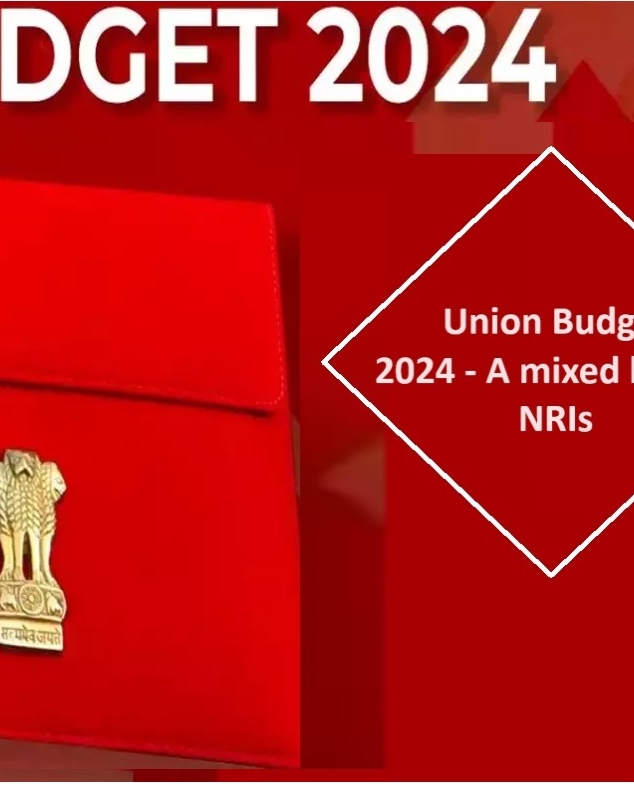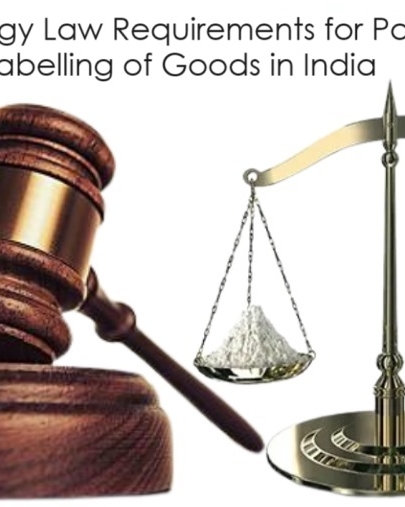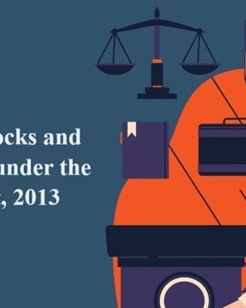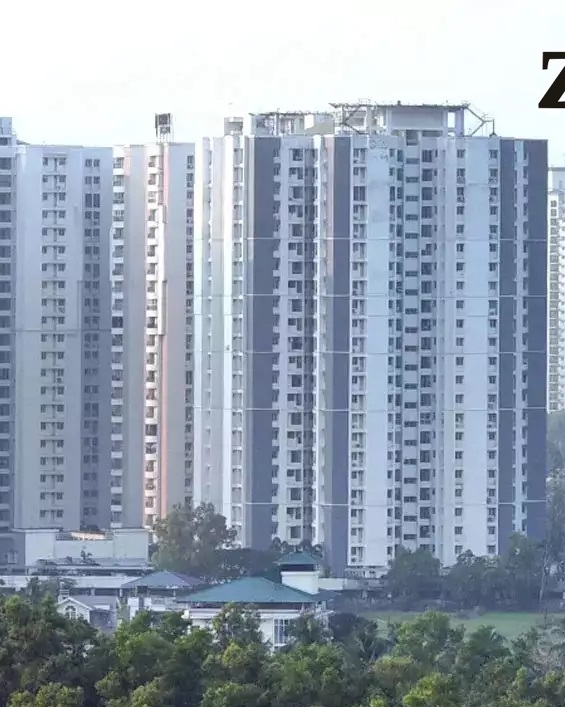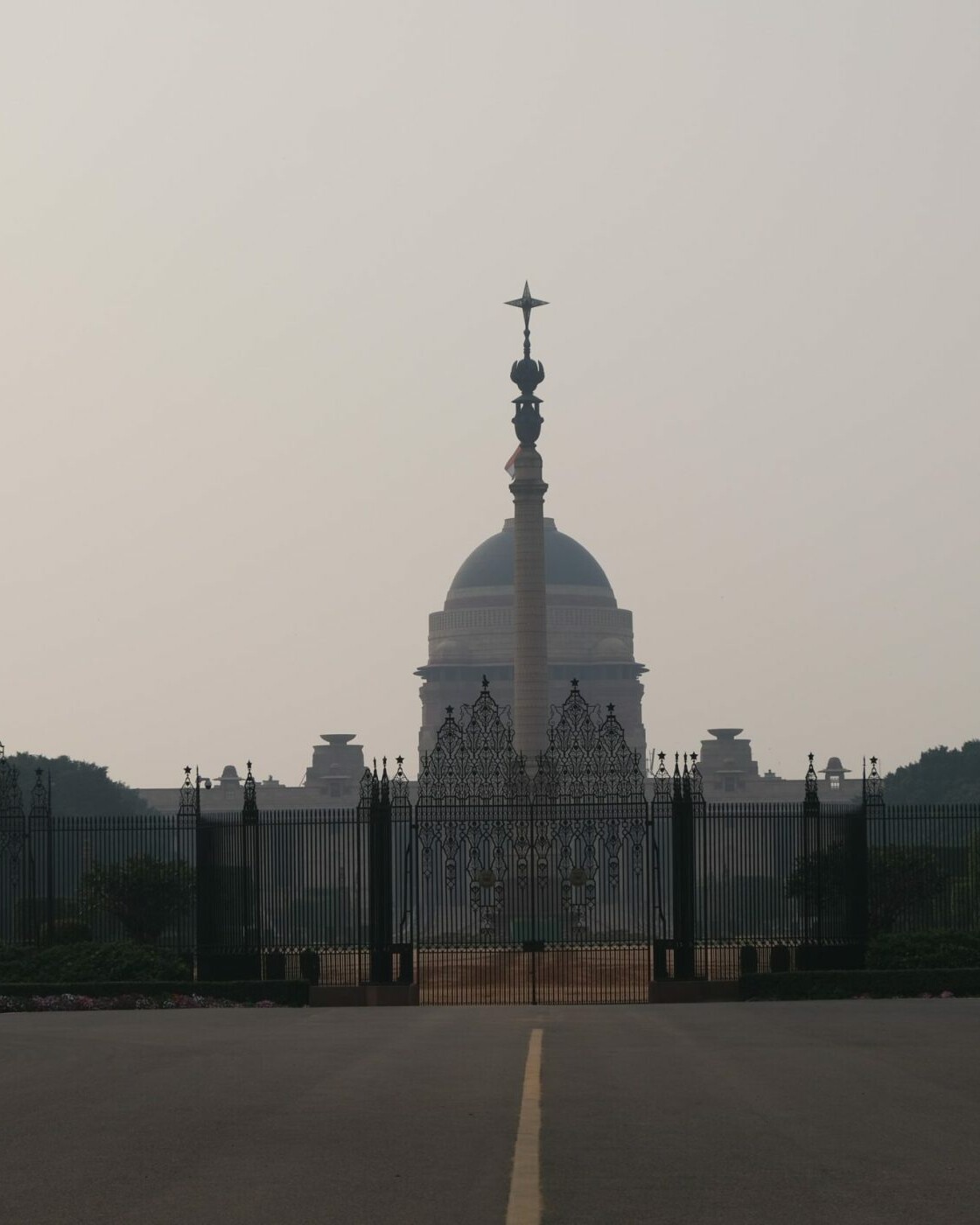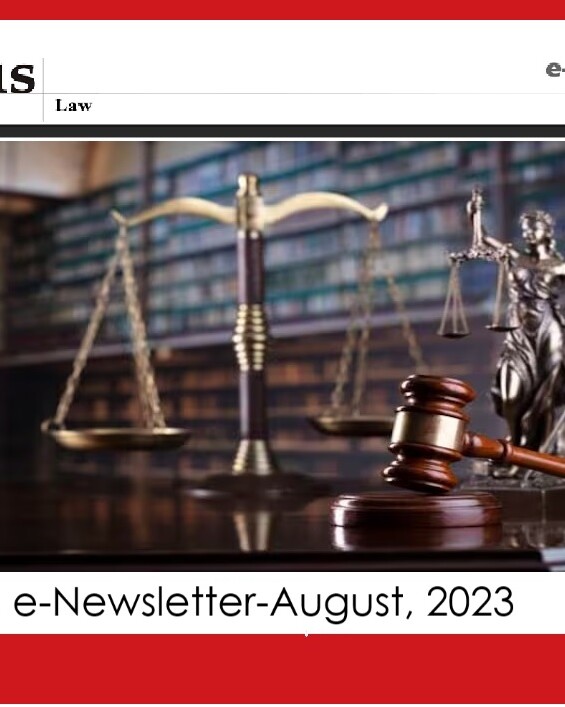Highlights:
Corporate Brief
- Circular No. 2023-24/87 dated 11.12.2023 issued by the Reserve Bank of India in regard to Sovereign Gold Bond (“SGB”) Scheme 2023-2024.
- Circular No. 2023-24/88 dated 12.12.2023 issued by the Reserve Bank of India in regard to the processing of e-mandates of recurring transactions.
- Circular No. 2023-24/90 dated 19.12.2023 issued the Reserve Bank of India in regard to the investment in Alternative Investment Funds (AIFs).
- Circular No. 2023/189 dated 18.12.2023 issued by SEBI in regard to simplification of requirements for grant of accreditation to investors.
- Circular No. 2023/186 dated 11.12.2023 issued by SEBI in regard to Credit of units of AIFs in dematerialized form.
- Circular No. 2023/190 dated 19.12.2023 issued by SEBI in regard to Principles of Financial Market Infrastructures.
- Circular No. 2023/196 dated 28.12.2023 issued by SEBI in regard to Framework on Social Stock Exchange.
RERA Brief
- Press Note dated 01.12.2023 issued by Uttar Pradesh Real Estate Regulatory Authority on instructions to the promoters.
- Press Note dated 04.12.2023 issued by Uttar Pradesh Real Estate Regulatory Authority on guidelines for advertisements, sale and promotion of project.
- Order No. GujRERA/Order No. 85 dated 05.12.2023 issued by Gujarat Real Estate Regulatory Authority on Implementation of Hybrid Mode in adjudication process.
- Office Memo vide Letter No. 67 UP RERA/CA/2023-24 dated 06.12.2023 issued by Uttar Pradesh Real Estate Regulatory Authority.
- Press Release dated 09.12.2023 issued by Uttar Pradesh Real Estate Regulatory Authority on norms on bank accounts (Part-I).
- Press Release dated 12.12.2023 issued by Uttar Pradesh Real Estate Regulatory Authority on norms for renaming and closing of bank accounts (Part-II).
- Office Order No. F1 (31)RJ/RERA/2019/9069 dated 22.12.2023 issued by Rajasthan Real Estate Regulatory Authority on Procedure for scrutiny and further proceedings in the complaints.
NCLT Brief
- Whether the MSME registration procured by a Corporate Debtor after initation of the CIRP proceedings of the Corporate Debtor entitle the ex-management of the Corporate Debtor to the exemptions provided in Section 240A of the I&B Code to the disqualifications given in Section 29A of the I&B Code?
Litigation Brief
- DISPUTE ARISING FROM CANCELLATION OF A DEED OR A DECLARATION OF RIGHTS ARISING FROM A DEED IS ARBITRABLE.
- Pre-conditions for application of Section 14 of the Limitation Act.
- A woman is eligible to be the ‘Karta’ of a Hindu undivided family; prejudices of society cannot serve as justification for depriving rights granted explicitly by the legislature: Delhi High Court.
Corporate Brief
Circular No. 2023-24/87 dated 11.12.2023 issued by the Reserve Bank of India in regard to Sovereign Gold Bond (SGB) Scheme 2023-24.
- Government of India vide its circular dated 08.12.2023 announced Series III and IV of the Sovereign Gold Bond Scheme 2023-24.
- Under this scheme, there will be a distinct series (Series III and IV) which will be indicated on the Bond issue to the investor.
- The Date of Subscription for Series III (2023-24) will be between 18.12.2023- 22.12.2023 and the Date of Issuance will be 28.12.2023.
- The Date of Subscription for Series IV (2023-24) will be between 12.02.2024-16.02.2024 and the Date of Issuance will be 21.02.2024.
- Subscription of the Bonds shall be made in the prescribed application form (FORM A), clearly stating the units(in grams) of the gold and the full name and address of the applicant.
- Application shall also be accompanied by the valid PAN Details issued by the Income Tax Department.
- Designated Scheduled Commercial Banks, Designated Post Offices, Stock Holding Corporation of India Ltd. Are the Receiving Offices that are authorized to receive applications for the Bonds either directly or through agents and shall also render all services to the customers.
- Receiving Offices shall issue an acknowledgement of the application in Form B to the applicant.
- Online applications shall be accompanied by email ID of the investors and should be uploaded on the Ekuber portal of the Reserve Bank of India along with the subscription details.
- Receiving Offices are also entrusted with the responsibility of providing service to the investors of the SGB. All current operative instructions regarding servicing of these bonds are made available vide a circular dated 22.10.2021 issued by the RBI.
Circular No. 2023-24/88 dated 12.12.2023 issued by the Reserve Bank of India in regard to the processing of e-mandates of recurring transactions.
- The Reserve Bank of India vide its circular dated 16.06.2022 in regard to the terms of relaxation in Additional Factor of Authentication (AFA) was permitted while processing e-mandates on Cards, Pre-paid Payment Instruments and Unified Payments Interface for subsequent recurring transactions with values up to Rs. 15,000/- subject to certain conditions.
- It was announced in the Statement on Developmental and Regulatory Policies dated 08.12.2023 that the limit was increased from Rs. 15,000/- to Rs. 1,00,000/- per transaction for the following categories:
- Subscription to Mutual Funds.
- Payment of Insurance Premium.
- Credit Card bill payments.
Circular No. 2023-24/90 dated 19.12.2023 issued by the Reserve Bank of India in regard to investment in Alternative Investment Funds (AIFs).
- Regulated Entities (REs) make investments in units of AIFs as a part of their regular investment operations. Certain transactions of REs involving AIFs that raise regulatory concerns. These transactions entail substitution of direct loan exposure of REs to borrowers, with indirect exposure through investments in units of AIFs.
- It is advised by the Reserve Bank of India that REs shall not make any investments in any schemes of the AIFs which has downstream investments either directly or indirectly in a debtor company of the RE.
- It is also advised by the RBI that if an AIF scheme, in which RE is already an investor, makes a downstream investment to any such debtor company, then the RE shall liquidate its investment in the scheme within 30 days from the date of such investment.
- In case REs are not able to liquidate their investments within 30 days, they shall make 100% provision on such investments.
- Investment by REs in the subordinated units of any AIF scheme with a “Priority Distribution Model” shall be subject to full deduction from REs capital funds.
Circular No. 2023/189 dated 18.12.2023 issued by SEBI in regard to simplification of requirements for grant of accreditation to investors.
- SEBI vide its circular dated 26.08.2021 on “Modalities for implementation of the framework for Accredited Investors” specified a framework for accreditation of investors by Accreditation Agencies. The following requirements were simplified for grant of accreditation to investors:
- Accreditation Agencies are allowed to access Know Your Customer (KYC) documents of applicants.
- Accreditation Agencies shall grant accreditation solely based on the KYC and the financial information of the applicants.
- Validity period of the Accreditation Certificate shall be for 2 years if the applicant meets eligibility criteria for preceding one financial year.
- The accreditation certificate issued by accreditation agencies shall include the disclaimer – “the assessment of the applicant for accreditation is solely based on the applicant’s KYC and financial information and does not in any manner exempt market intermediaries and pooled investment vehicles from carrying out necessary due diligence of the accredited investors at the time of on-boarding them as their clients.”
- Validity period of the Accreditation Certificate shall be for 3 years if the applicant meets eligibility criteria for preceding two financial years.
- In case of newly incorporated entity which does not have financial information for the preceding financial year but meets the net-worth criteria as on the date of application will be issued Accreditation Certificate with a validity period of 2 years.
- Annexure A (“Modalities of accreditation”) and Annexure B (“List of documents to be submitted by applicant for accreditation”) have been revised and provided in Annexure 1 and Annexure 2 respectively.
- This Circular shall come into force from immediate effect and Stock Exchanges and Depositories are directed to bring the provisions of this Circular to the notice of their subsidiaries who are recognized by SEBI as Accreditation Agencies.
Circular No. 2023/186 dated 11.12.2023 issued by SEBI in regard to Credit of units of AIFs in dematerialized form.
- SEBI vide its circular dated 21.06.2023 mandated all schemes of Alternative Investment Funds (AIFs) to dematerialize their units according to timelines.
- Based on the feedback received from the stakeholders, it has been decided to specify the process to be followed for dematerializing / crediting the units issued, in cases where investors are yet to provide demat account details to AIFs.
- Managers of AIFs shall continue to reach out to existing investors to obtain their demat account details and credit the units issued to them to their respective demat accounts. Depositories shall also aid in this process as advised by SEBI.
Circular No. 2023/190 dated 19.12.2023 in regard to Principles of Financial Market Infrastructures.
- SEBI vide its circulars dated 04.09.2013 and 16.12.2016 that as a member of IOSCO, SEBI is committed for adoption and implementation of the CPSS-IOSCO Principles for Financial Market Infrastructures (FMI) in its regulatory functions.
- The principles apply to systematically important FMI entities such as:
- Central Counterparty (CCP)
- Central Securities Depository (CSD)/ Securities Settlement System (SSS)
- Payment and Settlement Systems( PSS)
- Trade Repository (TR)
- The principles are international standards set forth to – (i) enhance safety and efficiency in payment, clearing, settlement and recording arrangements; (ii) reduce systematic risk; (iii) foster transparency and financial stability; and (iv) promote protection of participants and investors.
- The different categories of FMIs as identified under PFMIs are listed as – (i) Central Counterparties (CCP); (ii) Central Securities Depositories (CSD); (iii) Securities Settlement Systems (SSS); (iv) Payment Systems (PSS); and (v) Trade Repositories.
- SEBI regulated Depositories and Clearing Corporations are FMIs. They provide essential facilities and perform systematically critical functions in the market and shall be required to comply with the PFMIs specified by CPSS-IOSCO as applicable to them.
- The provisions of the Circular dated 19.12.2023 shall be enforceable form the quarter end i.e. December 2023.
- Circulars dated 04.09.2013 and 16.12.2016 shall be rescinded with effect from the date of implementation of this circular.
Circular No. 2023/196 dated 28.12.2023 issued by SEBI in regard to Framework on Social Stock Exchange.
- SEBI vide its circular SEBI/HO/CFD/PoD1/P/CIR/2022/120 dated September 19, 2022 (“Earlier Circular”) notified the detailed framework on Social Stock Exchange (SSE). This Earlier Circular has been now amended pursuant to public consultation through this Circular dated 28.12.2023.
- This Circular dated 28.12.2023 has been issued by SEBI exercising the powers conferred to it under Section 11(1) of the SEBI Act, 1992 to protect the interests of investors and to promote the development of and regulate the securities market.
- The said Circular shall come into force immediately.
Realestate Brief
Press Note dated 01.12.2023 issued by Uttar Pradesh Real Estate Regulatory Authority on instructions to the promoters.
- As per the Press Note dated 01.12.2023 issued by the Uttar Pradesh Real Estate Regulatory Authority (“UP RERA”) on instructions to the promoters, it has been mentioned that UP RERA observed a lack of compliance among promoters to the previously issued instructions. In the said Press Note dated 01.12.2023, UP RERA has emphasized that non-compliance with instructions under the Real Estate (Regulation and Development) Act, 2016 (“RERA Act”) is a punishable offence and directed the promoters to immediately comply with the same.
- The instructions include inter alia promoting projects without RERA registration, prominently displaying the RERA registration number and portal in promotions, and ensuring official and effective project-related correspondence.
Press Note dated 04.12.2023 issued by UP RERA on standard guidelines for advertisements, sale and promotion of project.
- As per the Press Note dated 04.12.2023 issued by UP RERA, standardized guidelines for the advertising of real estate projects have been introduced.
- These guidelines, applicable to media houses, promoters, and agents, require the prominent mention of the project registration number and portal in all advertising materials for promotions, marketing, and sales of a project.
- The guidelines encompass various advertising platforms, including newspapers, magazines, brochures, leaflets, electronic media, social media, digital media, and outdoor publicity.
- As per the guidelines, the RERA portal and registration number must be prominently displayed in print, social, and digital media, ensuring readability. In radio and electronic media, the information should be announced audibly and at a sufficient speed. Outdoor advertisements, such as billboards and street banners, must use capital letters, that are visible from a distance, and easily readable.
- The promoters, agents, and media houses are required to adhere to these guidelines and violations shall result in actions against promoters and agents under the RERA Act, with media houses referred to the Ministry of Information and Broadcasting and news regulatory bodies for appropriate measures.
Order No. GujRERA/Order No. 85 dated 05.12.2023 issued by Gujarat Real Estate Regulatory Authority on Implementation of Hybrid Mode of hearing in adjudication process of Complaints/Review Applications/Execution Applications put up before the Authority.
- The Gujarat Real Estate Regulatory Authority vide Order No. GujRERA/Order No. 85 dated 05.12.2023 has adopted hybrid mode of hearing in adjudication process of complaints/review applications/execution applications put up before the Authority to attain the objective of speedy dispute redressal, with optimum utilization of resources like time, manpower, expenses for travelling etc, of all the stakeholders.
Office Memo vide Letter No. 67 UP RERA/CA/2023-24 dated 06.12.2023 issued by UP RERA.
- In the Office Memo vide Letter No. 67 UP RERA/CA/2023-24 dated 06.12.2023 issued by UP RERA, it has been stated that implementation of the RERA Act brought clarity and uniformity between buyers and developers on basic issues so that the interest of both developers and allottees/buyer are protected.
- As per the said Office Memo dated 06.12.2023, one of the basic issues is the calculation of area at the time of sale of flat/apartment. The Memo further states that it has been observed that in some areas, the term ‘Super Area’ is being used which is vague and misleading and the concept of ‘Super Area’ is not lawful as per the RERA Act.
- The model RERA (Agreement for Sale/Lease) Rules, 2018 issued by UP RERA clearly prescribes that the agreements for sale/ lease be based on the Carpet Area only.
- It has been mandated that any sale/ purchase of an apartment would be on the basis of carpet area only and any calculation of area of an apartment/ flat on other formula or concept shall be unlawful.
- The Memo further states that with respect to common areas it has been observed that the common areas are being sold. As per RERA Act, common areas cannot be sold, and UP RERA directed that the sale/ purchase of common areas is prohibited.
Press Release dated 09.12.2023 issued by UP RERA regarding restrictions to pay from separate bank account.
- As per the Press Release dated 09.12.2023 issued by UP RERA promoters are not allowed to pay assured returns, penal interest, and penalties from separate account.
- The said Press Release dated 09.12.2023, several directions have been issued to promoters including inter alia.
- At the time of making applications for registration of a project, Promoter is to give details of Collection Account, Separate Account and Transaction Account.
- It is mandatory to deposit in the Separate Account the entire amount in respect of secured and unsecured loans obtained from banks and financial institutions for construction of project.
- Promoter can remit from the Separate Account, simple interest for the bank loan obtained for construction of project, however, penal and compound interest or any interest or compensation payable to allottees cannot be paid out of Separate Account.
- Withdrawals from Separate Account by means of cheque, debit card, credit card, net banking or demand draft and bank guarantee is prohibited.
Press Release dated 12.12.2023 issued by UP RERA on norms for renaming and closing of bank accounts of a project.
- Vide the Press Release dated 12.12.2023 issued by UP RERA on norms for renaming and closing of bank accounts of a project, clear instructions have been laid down regarding the opening of bank accounts, their operation, reports to be given by the promoter to RERA, auditing of accounts, changes in the bank accounts and their closure.
- Auditing of bank accounts mandated: Promoters to conduct annual audits of project bank accounts, uploading the reports on the RERA website within six months of the financial year’s end.
- For changes in project bank accounts: Promoters can apply online and in case of exceptional circumstances, such as when a bank account was not provided during initial registration, when a single account serves multiple projects, or if the provided account is a general collection account distinct from the one specified in the directions. RERA may additionally, permit such change if the project’s bank account is located in a different district or if the bank undergoes acquisition or the promoter secures loan for entire project from a different bank.
- Closure of project bank accounts: Promoter to make an online application, supported by a completion certificate, architect’s certificate (RA-5), final certificate from a Chartered Accountant (REG-Form-3), and a personal affidavit from the promoter confirming resolution of liabilities outlined in Section 11(4)(g) of RERA. Upon RERA examination and satisfaction, the promoter may be given permission to close the project account and withdraw any remaining funds from Separate Account.
- However, UP RERA has also warned that if any misrepresentation is made by the promoter regarding the settlement of all liabilities, even after permission to close the account of the project, the promoter will not be freed from his responsibilities and RERA will take legal action in such cases.
Office Order No. F1 (31)RJ/RERA/2019/9069 dated 22.12.2023 issued by Rajasthan Real Estate Regulatory Authority on Procedure for scrutiny and further proceedings in the complaints.
- The Rajasthan Real Estate Regulatory Authority vide Office Order dated 22.12.2023 notified that the complaints filed for adjudication before the Authority or the Adjudicating Officer shall be scrutinized at the registry level.
- The defects are to be pointed out at the registry level, which are required to be removed within the given time period of 7/10 days. Furthermore, the defects may be removed by giving an additional opportunity by issuing a second intimation for their removal in the next one week.
- Registry may reject complaints if defects persist; If a complaint is found in order, it shall be placed before authority or adjudicating officer after intimating the complainant.
- The Authority or Adjudicating Officer while passing an order for issuing notice to the Respondent, may direct the registry to obtain a reply by allowing a maximum of two opportunities not exceeding 15 days at a time and thereafter the matter is to be listed before Authority or Adjudicating Officer.
NCLT Brief
Whether the MSME registration procured by a Corporate Debtor after initation of the CIRP proceedings of the Corporate Debtor entitle the ex-management of the Corporate Debtor to the exemptions provided in Section 240A of the I&B Code to the disqualifications given in Section 29A of the I&B Code?
Factual Background
The Corporate Insolvency Resolution Process (“CIRP”) proceedings of Shree Aashraya Infra-Con Limited (“Corporate Debtor”) was initiated vide Order dated 06.04.2021 and Mr. Hari Babu Thota was appointed as the resolution professional (“RP”) of the Corporate Debtor. Thereafter, the RP registered the Corporate Debtor under the Micro, Small and Medium Enterprises Development Act, 2006 (‘MSME Act‘) and resolution plans were invited for the resolution of the Corproate Debtor. Pursuant thereto, the ex-management of the Corporate Debtor submitted their resolution plan for the Corporate Debtor.
The RP submitted the resolution plan of the ex-management of the Corporate Debtor to the Committee of Creditors (CoC) for their approval. The CoC approved the resolution plan submitted by the ex-management of the Corporate Debtor by 100% vote. Subsequently, the RP filed an application bearing I.A. No. 192/2022 (“Application”) before the Hon’ble National Company Law Tribunal (“NCLT”) seeking approval of the NCLT for the resolution plan submitted by the ex-management of the Corporate Debtor. However, the Hon’ble NCLT vide Order dated 28.02.2023 dismissed the Application on the grounds that the ex-management of the Corporate Debtor could not have presented a resolution plan.
Aggrieved by the Order dated 28.02.2023 passed by the Hon’ble NCLT, the RP preferred an Appeal bearing C.A. (AT) (CH) (Ins.) No. 110 of 2023 (“Appeal”) before the Hon’ble National Company Law Appellate Tribunal (“NCLAT”). The NCLAT vide Order dated 02.06.2023 upheld the Order dated 28.02.2023 passed by the Hon’ble NCLT and dismissed the Appeal.
Aggrieved by the Order dated 02.06.2023 passed by Hon’ble NCLAT, the RP preferred a Civil Appeal before the Hon’ble Supreme Court.
Decision of the Supreme Court
The Hon’ble Supreme Court clarified that the disqualification applicable to ex-management would not extend to MSMEs. The Hon’ble Supreme Court while emphasizing that the date of initiation of CIRP proceedings is not the relevant date for Section 240A of the I&B Code, held that the crucial date is the date of submission of resolution plan. Therefore, the Hon’ble Supreme Court set aside the order of the NCLAT, thereby, allowing the civil appeal in the present case.
Reference: Hari Babu Thota Resolution Professional of Shree Aashraya Infracon Limited [2023 SCC OnLine SC 1642]
Litigation Brief
DISPUTE ARISING FROM CANCELLATION OF A DEED OR A DECLARATION OF RIGHTS ARISING FROM A DEED IS ARBITRABLE
IN THE MATTER OF: Sushma Shivkumar Dega and Anr. v Madhurkumar Ramkrishnaji Bajaj and Ors (pronounced by the Hon’ble Supreme Court of India on 15.12.2023 in Civil Appeal No. 1854 OF 2023)
Facts:
- M/s Emerald Acres Private Limited (Respondent No. 2) was incorporated by Late Mr. Shivkumar Daga and his wife, Mrs. Sushma Shivkumar Daga (Appellant No.1) on 18.04.2006 to carry 3 on the business of real-estate development.
- Two Tripartite Agreements, dated 31.03.2007 and 25.07.2008, were signed between the Mr. Shivkumar Daga and the Respondents to develop, trade, and deal with the property and also to acquire such further properties as may be mutually agreed between the parties. Both these agreements contained an arbitration clause. Mr. Shivkumar Daga died on 08.05.2011, bequeathing his assets through a will dated 10.02.2011 to the Appellants.
- A Conveyance Deed dated 17.12.2019 and the five Development Agreements dated 17.09.2007, 20.11.2007, 30.11.2007, 03.12.2007 and 27.02.2008 were executed by Mr. Shivkumar Daga and the Respondents. The said Conveyance Deed and the Development Agreements find their source in the two Tripartite Agreements dated 31.03.2007 and 25.07.2008.
- The Appellants filed a suit seeking, inter alia, a declaration that the Deed of Conveyance dated 17.12.2019 be declared null and void, and that the Development Agreements, dated 17.09.2007, 20.11.2007, 30.11.2007, 03.12.2007 and 27.02.2008, entered into pursuant to the two Tripartite Agreements be declared validly terminated.
- The Respondent moved an application under Section 8 of the Arbitration & Conciliation Act, 1996 (“the Act”) for referring the matter to arbitration by invoking arbitral clause in the two Tripartite Agreements dated 31.03.2007 and 25.07.2008.
- The Trial Court allowed the application of the defendant and referred the matter for arbitration, vide its order dated 13.10.2021. The Appellant challenged this order dated 13.10.2021 in Writ Petition No.8836 of 2021 before the Hon’ble High Court of Bombay, which was dismissed vide order dated 10.12.2021.
- The Appellant thereafter challenged the order of the Hon’ble High Court of Bombay before the Hon’ble Supreme Court of India.
Issues:
- Whether the Trial Court and the High Court have rightly referred the matter to arbitration?
- Whether the dispute is not liable to be referred to arbitration, as there was no arbitration clause in the Conveyance Deed dated 17.12.2019?
- Whether the dispute is arbitrable?
Courts Observations and Findings:
- In the present case, the Appellants had purported three objections i.e., (1) the absence of an arbitration clause in the Conveyance Deed dated 17.12.2019 and the development agreements; (2) the suit filed by the appellants is for cancellation of a document relating to immovable property i.e. land and it therefore amounts to an action in rem and hence non-arbitrable and (3) regarding fraud.
- The Hon’ble Supreme Court of India held that the Trial Court and the High Court have rightly held that the broad language of the “arbitration clause” in the two Tripartite Agreements dated 31.03.2007 and 25.07.2008 would cover the dispute raised by the appellants before the Civil Court, and hence the case has been rightly referred for arbitration.
- The Court held that the basic purpose for bringing an amendment in Section 8 (as well as Section 11 of the Arbitration Act) was to minimise the scope of judicial authority in matters of arbitration, except on the ground where prima facie, no valid arbitration agreement exists.
- It was opined that present case did not fall in any of the “non-arbitrable” categories as stated in Booz Allen and Hamilton Inc. v. SBI Home Finance Limited and Others[1], i.e., matrimonial disputes, guardianship dispute, or disputes governed by the Consumer Protection Act, 2019. It was further opined that the present case also does not satisfy the four-fold test of determining if a dispute is non-arbitrable as laid down in Vidya Drolia v. Durga Trading Corporation[2].
- The Court referred to the cases of Vidya Drolia v. Durga Trading Corporation[3] and NTPC Ltd. v. SPML Infra Ltd.[4], wherein it was held that Court will only decline reference under Section 8 or under Section 11 of the Act in rare cases where the Court is certain that either the arbitration agreement is non-existent, or the dispute is itself “manifestly non-arbitrable”.
- Further, the court while placing reliance on Deccan Paper Mills v. Regency Mahavir Properties[5], held that a suit for cancellation of a deed or a declaration of rights rising from a deed would only be an action in personam and not in rem. The said case clarified that a relief sought under the Specific Relief Act is an action in personam.
- Moreover, the plea of fraud raised by the appellants in their objection to the Section 8 application has never been substantiated.
- The Court, as such, dismissed the appeal.
Pre-conditions for application of Section 14 of the Limitation Act
CASE ANALYSIS: U.P. Jal Vidyut Nigam Limited vs. C.G. Power & Industrial Solution Limited, 2023 SCC OnLine Del 7916
Decided by Hon’ble High Court of Delhi on 12.12.2023.
Factual matrix:
- The Appellant issued tenders for a Power House Electrical equipment project in District Saharanpur, awarding the contract to the Respondent on 28.09.1988. Disputes arose between the parties, leading to arbitration at New Delhi. The Arbitral Tribunal pronounced an Award in favor of the Respondent on 15.03.2001.
- The Appellant filed objections to the Arbitral Award on 02.07.2001 under Section 34 of the Arbitration and Conciliation Act, 1996 (“the A&C Act”) before the Civil Judge, Saharanpur. The objections were returned on 26.08.2003, thereafter the Petition was transferred to the Additional District Judge, Saharanpur on 11.04.2011, and dismissed in default twice (15.07.2013 and 22.11.2016), leading to filing of Execution Petition for execution of Award by the Respondent.
- The Appellant’s stay application was rejected on 06.01.2018, prompting a Writ Petition under Article 227 before the Allahabad High Court, resulting in an order on 19.02.2018 imposing conditions for restoration and decision.
- The Restoration Application was allowed on 14.03.2018, but the Appellant filed for withdrawal on 02.05.2018 before the District Court at Saharanpur which was allowed subsequently on 03.05.2018
- Thereafter, the Appellant lodged the Section 34 Petition on 08.05.2018 before the District Judge at Patiala House Courts, New Delhi. However, on 04.08.2018, the Section 34 Petition was remitted for submission before the High Court of Delhi due to the District Judge’s insufficient pecuniary jurisdiction to adjudicate upon the said Section 34 Petition.
- The Appellant then filed the Petition under Section 34 before the Ld. Single Judge of the Hon’ble High Court of Delhi along with an Application seeking exclusion of 6263 days under Section 14 of the Limitation Act.
- By way of the impugned judgement, the Ld. Single Judge dismissed the said Application along with the Petition. Hence, the Appeal was preferred before the Division Bench.
Key Issue
Whether for calculating limitation under Section 34(3) of the A&C Act, the delay of 6263 days can be excluded and condoned by the Hon’ble High Court of Delhi in terms of Section 14 of the Limitation Act, 1963.
Observations
- The Hon’ble court referred to Section 14 of the Limitation Act,1963 which allows for the exclusion of time in calculation of the limitation period where such proceeding is prosecuted in good faith in a court which, from defect of jurisdiction or other cause of a like nature, is unable to entertain it.
- The Hon’ble Court further referred on legal precedent established by the Apex Court in the case of Consolidated Engineering Enterprises v. Principal Secretary, Irrigation Department (2008) 7 SCC 169 which delineates the prerequisites for the application of Section 14 by stating that the provision necessitates the fulfilment of specific conditions, including the proceedings being civil in nature, demonstration of good faith, due diligence, defect of jurisdiction or other cause of like nature, same matter in issue, and the existence of both proceedings in a court.
- Relying upon another judgment of the Apex Court in Madhavrao Narayanrao Patwardhan v. Ramkrishnagovind Bhanu, 1959 SCR 564, for understanding meaning of the term “good faith” as expounded in Section 2(h) of the Limitation Act, 1963, it was observed that the term denotes the execution of actions with due care and attention. It was further observed that for showing “due care and attention” any evidence brought on record by the Plaintiff showcasing that he was prosecuting the previously instituted suit with due diligence, is to be evaluated.
- Applying above referred conditions, the Hon’ble Court found that the Appellant’s conduct lacks due diligence, noting delays, dismissals, and jurisdictional issues. The Appellant’s claims of jurisdiction based on legal advice were dismissed as unfounded. The Hon’ble Court highlighted the absence of diligence in prosecuting the case for over 15 years in lower courts. Consequently, the Court held that the pre-conditions for applying Section 14 of the Limitation Act were not met, denying relief to the Appellant by dismissing the Appeal and emphasizing the importance of due diligence in legal proceedings.
A woman is eligible to be the ‘Karta’ of a Hindu undivided family; prejudices of society cannot serve as justification for depriving rights granted explicitly by the legislature: Delhi High Court
Manu Gupta v. Sujata Sharma, 2023 SCC OnLine Del 7722
FACTS
In the present case, a Hindu Undivided Family (HUF) called D.R. Gupta and Sons was established in 1963. All its assets were declared to belong to the HUF, with D.R. Gupta as the Karta (head) and sons as coparceners. However, all the five sons eventually passed away. Therefore, a question arose as to who should be the next karta. Respondent No. 1 (daughter of one deceased son) claimed that she was the senior coparcener and thus entitled to become Karta under the 2005 Hindu Succession Act amendment granting daughters with the coparcenary rights. However, the appellant (another family member) disputed this claim. The matter went to the trial court, which ruled in favour of Respondent No. 1, citing the 2005 amendment removing gender barriers to coparcenary and Karta status. The appellant therein filed an appeal against the decision of the trial court with the Delhi High Court.
OBSERVATION AND DECISION OF THE COURT
In light of the 2005 amendment of the Hindu Succession Act and its consequences in the meaning of a joint family and its attributes, the Court concluded that a joint Hindu family was made up of male members who shared a common male ancestor, and including their mothers, wives, widows, and unmarried daughters. The institution’s defining characteristic, the concept of sapindaship, or familial relationships, was what united them. According to the Court, a coparcenary is a smaller group that is a subset of a Joint Hindu Family in which a birthright interest in property is generated.
Therefore, giving a woman a different interpretation that would prevent her from having the same rights to property as men would be counterproductive to granting her the status of coparcener and Karta. It was ludicrous to argue that an estate’s owner was denied the ability to manage their land because that right was ancillary to ownership.
The Court held that the eldest member of the family coparcener retained the legal right to be a Karta, even if she was a woman, despite the appellant representing himself as a Karta in official correspondence. The Court further held that being a Karta was a grant of legal status, including the power to manage the HUF properties.
There was no obstacle to Respondent 1’s status as the Karta of the HUF because neither the legislature nor conventional Hindu law in any way restricted a woman’s ability to be a Karta. Additionally, the Court held that societal beliefs could not be used as a justification for denying a woman the rights expressly granted by the legislature. Relying on the landmark judgement of the Hon’ble Supreme Court in the case of Vineeta Sharma v. Rakesh Sharma, (2020) 9 SCC 1, the Court held that the daughter’s entitlement to coparcener status could not be dependent on her father’s life expectancy. The criterion of intelligible differentia, which was intended to be addressed by the Hindu Succession Act amendment, could not be upheld by such a distinction. The court, therefore designated Respondent No. 1 to be a Karta in order to represent the HUF before the appropriate body.
***
Disclaimer:
For private circulation to the addressee only and not for re-circulation. Any form of reproduction, dissemination, copying, disclosure, modification, distribution and/ or publication of this Newsletter is strictly prohibited. This Newsletter is not intended to be an advertisement or solicitation. The contents of this Newsletter are solely meant to inform and is not a substitute for legal advice. Legal advice should be obtained based on the specific circumstances of each case, before relying on the contents of this Newsletter or prior to taking any decision based on the information contained in this Newsletter. ZEUS Law disclaims all responsibility and accepts no liability for the consequences of any person acting, or refraining from acting, on such information. If you have received this Newsletter in error, please notify us immediately by telephone.
Copyright © 2014 ZEUS Law. All rights reserved. Replication or redistribution of content, including by caching, framing or similar means, is expressly prohibited without the prior written consent of ZEUS Law.
[1] (2011) 5 SCC 532.
[2] (2021) 2 SCC 1.
[3] Id.
[4] (2023) 9 SCC 385.
[5] (2021) 4 SCC 786.







